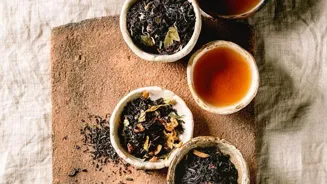Discover the magic of Herbal Teas: 7 Desi Flavours for a Healthier You. Explore traditional remedies and their benefits
In a country like India, we are used to a daily dose of chai, often milky and sweet.
But have you ever thought of swapping your usual cup for something healthier? Herbal teas, also known as tisanes, have been used traditionally for centuries in Ayurveda and other healing practices.
These aren't your regular black or green teas, but infusions made from herbs, spices, flowers, and fruits. They're naturally caffeine-free and packed with antioxidants, vitamins, and minerals, offering a gentle and flavourful way to boost your well-being.
Let's explore seven desi herbal tea varieties that you can easily incorporate into your daily routine.
Tulsi Tea: The Holy Basil Brew
Tulsi, or Holy Basil, is a revered herb in India, almost found in every household. Known for its adaptogenic properties, tulsi helps the body adapt to stress and promote mental clarity.
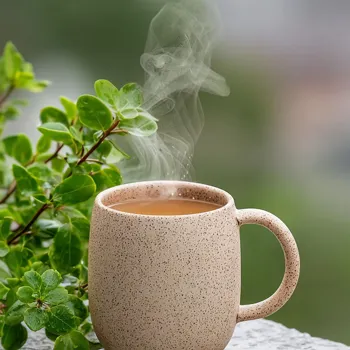
Drinking tulsi tea regularly can help lower stress hormones, boost your immune system, and improve respiratory health. It has a slightly peppery and aromatic flavour that is quite soothing. You can find tulsi tea bags easily in stores, or use fresh tulsi leaves for a more robust flavour!
Simply steep a few leaves in hot water for 5-7 minutes and enjoy. Also, avoid using boiling with fresh leaves for too long because it will release tannins that will cause taste issues.
Tulsi tea is considered to be an elixir of life in Ayurveda due to its many benefits.
The anti-inflammatory and antioxidant properties of tulsi can help fight free radicals in the body. Studies have also shown that it can regulate blood sugar levels and improve cardiovascular health.
For those feeling anxious or overwhelmed, a warm cup of tulsi tea can provide a calming effect and promote emotional well-being. It’s a simple yet powerful way to incorporate traditional wisdom into your modern lifestyle.
Ginger Tea: A Spicy Remedy
Ginger, or adrak, is a common ingredient in Indian cooking and is also a fantastic remedy for various ailments. Ginger tea is known for its warming and anti-inflammatory properties, making it a great choice for relieving nausea, indigestion, and cold symptoms.
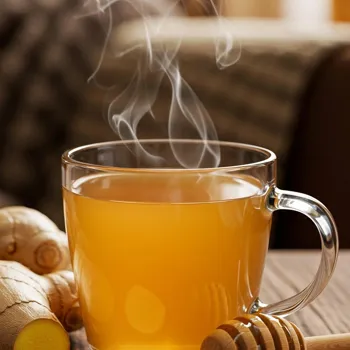
It is also considered to be excellent for helping you during the winters. The spicy and pungent flavour of ginger tea can be quite invigorating, especially first thing in the morning.
To make ginger tea, simply boil a few slices of fresh ginger in water for 10-15 minutes.
You can also add a touch of honey or lemon to enhance the flavour. Ginger tea is a natural and effective way to soothe a sore throat, clear congestion, and boost your immunity during the flu season. It also helps improve blood circulation and reduce muscle pain.
Be careful to not add too much, the tea is best when ginger slices are used in controlled quantity.
Chamomile Tea: The Sleep Inducer
Chamomile tea is widely recognized for its calming and sleep-inducing properties. Made from the dried flowers of the chamomile plant, this tea has a delicate floral aroma and a mild, slightly sweet taste. It is a great option for winding down before bed and promoting relaxation.
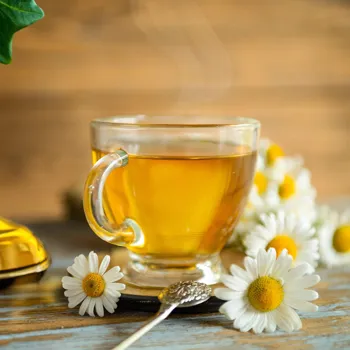
Chamomile tea helps reduce anxiety and improve sleep quality without any side effects.
To prepare chamomile tea, steep a chamomile tea bag or loose flowers in hot water for 5-10 minutes. Sip it slowly and let its soothing properties lull you into a peaceful slumber.
It is also gentle on the stomach and can help relieve digestive discomfort. Chamomile tea is a safe and natural way to address insomnia and promote a restful night's sleep. Perfect for those that have trouble sleeping!
Lemongrass Tea: The Citrus Blast
Lemongrass, or chai patti, is a fragrant herb commonly used in Asian cuisine and herbal remedies. Lemongrass tea has a refreshing citrusy flavor and is known for its detoxifying and diuretic properties. It can help flush out toxins from the body, improve digestion, and reduce bloating.
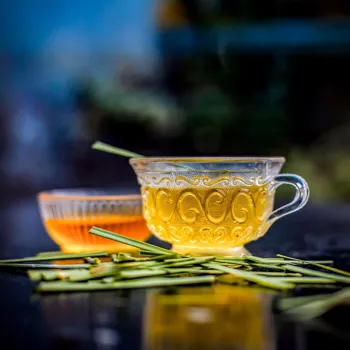
Lemongrass tea is also a good source of antioxidants and can help boost your immune system.
To make lemongrass tea, boil a few stalks of fresh lemongrass in water for 10-15 minutes. You can also add a squeeze of lemon or a spoonful of honey to enhance the flavour.
It is best to smash the lemongrass into small parts so that it releases its aromas and flavourful essence completely. Lemongrass tea is a revitalizing beverage that can help you feel refreshed and energized. It is an excellent choice for a mid-day pick-me-up or a post-meal digestive aid.
Peppermint Tea: The Digestive Aid
Peppermint tea is a popular herbal tea known for its refreshing flavour and digestive benefits. Made from peppermint leaves, this tea has a cooling and invigorating effect on the body. It helps relieve indigestion, bloating, and gas, making it a great after-meal beverage.
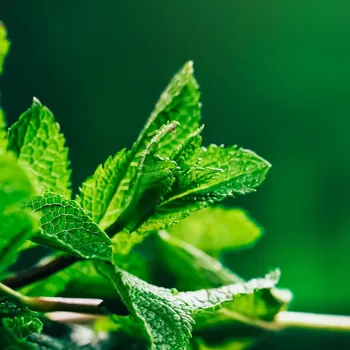
Peppermint tea can also soothe headaches and clear sinus congestion.
To prepare peppermint tea, steep a peppermint tea bag or fresh leaves in hot water for 5-10 minutes. Sip it slowly and enjoy its cooling and refreshing effect.
The menthol in peppermint helps relax the muscles in the digestive tract, promoting smooth digestion. Peppermint tea is a versatile and effective remedy for various digestive ailments.
Hibiscus Tea: The Tangy Delight
Hibiscus tea, made from the vibrant petals of the hibiscus flower, offers a tart and tangy flavour that can be enjoyed both hot and cold. Beyond its delightful taste, hibiscus tea boasts several health benefits, including lowering blood pressure and improving cholesterol levels.
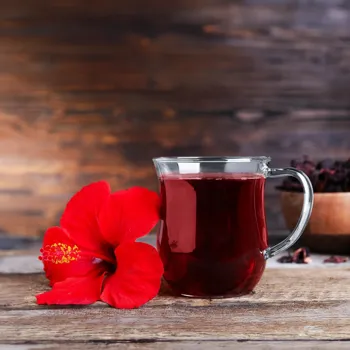
It is also rich in antioxidants, helping protect your body against free radicals and promoting overall well-being. Sipping on hibiscus tea can be a refreshing way to support your cardiovascular health and enjoy a burst of flavour.
To make hibiscus tea, steep dried hibiscus flowers in hot water for 5-10 minutes. Strain the tea, add a touch of honey or stevia if desired, and enjoy. Hibiscus tea is naturally caffeine-free and makes a great alternative to sugary beverages.
Its vibrant red colour and tangy flavour make it a visually appealing and delicious choice! Making it interesting and great tasting is key.
Coriander Tea: A Unique Twist
Coriander, or dhania, isn't just for garnishing; it can also be brewed into a surprisingly beneficial tea. Coriander tea is a hidden gem with a mild, herbaceous flavour. It is known for its digestive properties, helping to ease bloating and indigestion.
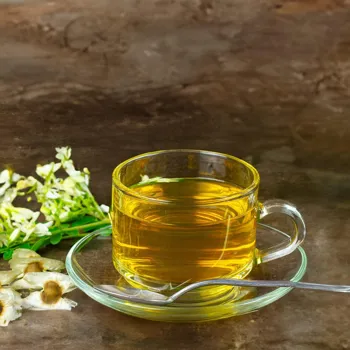
The seeds are also great against the common cold when you are having seasonal flu. Furthermore, coriander is rich in antioxidants, which can help protect your cells from damage. This flavourful tea can also help to regulate blood sugar levels.
To prepare coriander tea, lightly crush a tablespoon of coriander seeds and steep them in hot water for 10-15 minutes. Strain, and then sip slowly. You can also add a squeeze of lemon or a hint of ginger for an extra boost.
If you are looking for an alternative to boost your diet plan, make sure to try this tea.
AI Generated Content. Glance/InMobi shall have no liability for the content